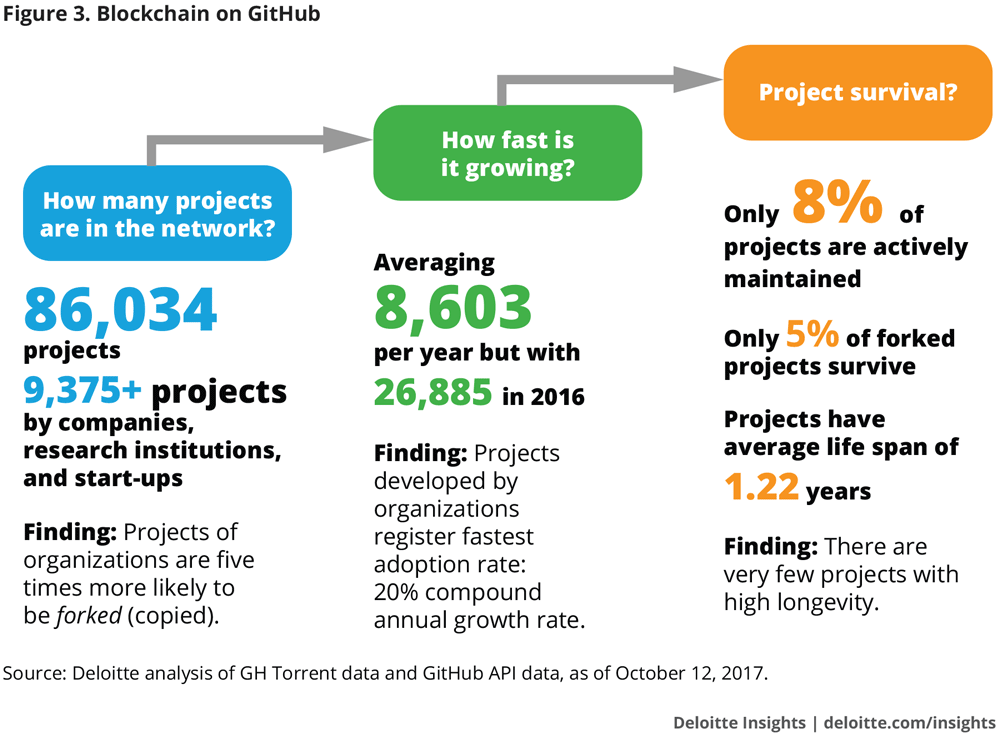In its new report entitled “Evolution of blockchain technology,” Deloitte, one of the “Big Four” accounting firms with a $38.6 billion annual revenue, revealed that more than 26,000 blockchain projects were released in 2016.

Difference Between Open-Source and Centralized Blockchain Development
Data presented above in the infographic provided by Deloitte is based on cumulative analysis done by the Deloitte blockchain team, which focused on evaluating open source projects on Github, a widely utilized code repository.
“We chose GitHub because it is the largest known software collaboration platform in the world, with more than 68 million projects and 24 million participants GitHub also appears to host the most important projects for the blockchain community,” said Deloitte.
Unlike centralized blockchain development done by financial institutions, technology conglomerates, and other corporations attempting to commercialized permissioned blockchain ledgers, the development of decentralized blockchain platforms are executed in an open source ecosystem, in a decentralized manner.
Thus, any developer within the open source development community can contribute to the codebase of blockchain projects, creating a vibrant community in which codes are better audited, reviewed, and tested.
Open source development has been a key factor in the exponential growth of public blockchain networks like bitcoin, Ethereum, and Bitcoin Cash, which are valued at nearly $200 billion based on the most recent market valuations provided by cryptocurrency market data analysis platforms.
Only a handful of companies including Microsoft are leading open-source projects to facilitate the growth of the global cryptocurrency and blockchain industries. Their most recent Ethereum framework-based project Coco, has been well accepted by the cryptocurrency community, due to their open-source development philosophy.
“In analyzing blockchain repositories and their content, we noticed that increasingly more organizations appear to be getting involved. In 2010, organizations developed less than 1 percent of all projects. By 2017, their blockchain projects accounted for 11 percent. And recent data about the rate at which commercial organizations can find success with blockchain initiatives through open source seems promising; some high-profile, large commercial entities are already doing so,” added the Deloitte report.
Centralized Blockchains Cannot Compete With Public Blockchains
Over the past 12 months, the value of bitcoin, Ethereum and other leading public blockchains in the global cryptocurrency market have substantially surged within a relatively short period of time, while none of the centralized blockchain or permissioned ledger projects being led by financial institutions have seen any commercial success with billions of dollars allocated every year in research and development.
It is evident that centralized blockchain projects simply cannot compete with the vibrant development communities of public blockchain networks, despite the lack of incentives for open blockchain software developers. It is significantly more challenging to review, test, audit, and implement codes with a closed group of developers, which often leads to the deployment of unsafe code and unstable platforms.
As such, financial institutions will not be able to compete with bitcoin and Ethereum in the long-term, regardless of the amount of capital and resources they allocate in research and development.